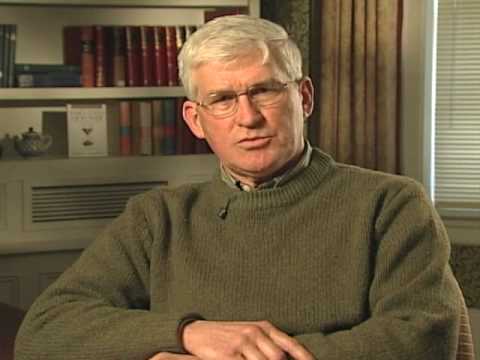Setting Aside the Imperial Diadem

Andrew Bacevich defends the Quincy Institute from Bill Kristol’s predictable denunciation:
I am, of course, caricaturing Kristol’s views, just as he caricatures anyone who suggests that the interests of the United States, and perhaps even of the rest of the world, might be better served by an approach to U.S. policy based on realism and restraint—not turning our back on the world but engaging it creatively, informed by an appreciation that the 1920s and 1930s are gone for good.
Hawkish attacks on the Quincy Institute have been the standard fare we have come to expect from unrepentant advocates of unnecessary and illegal wars. They have been remarkably similar to the dismissive and arrogant responses to the launch of TAC when it was first announced almost 17 years ago. TAC was the prophetic voice in the wilderness in opposition to the Iraq war back then, especially on the right, but that voice has grown louder and more people than ever are hearing it. The message that TAC offers on foreign policy is the essentially the same one as that being put forward by the Quincy Institute, and there is both a great need for that message and a great hunger among Americans across the spectrum for a foreign policy that is both responsible and humane, just and wise, peaceful and prudent. The Institute’s website says it very well:
The current moment presents a once-in-a-generation opportunity to bring together like-minded progressives and conservatives and set U.S. foreign policy on a sensible and humane footing. Our country’s current circumstances demand it.
The intellectual bankruptcy of interventionists has been on display for a while, but Kristol’s sniping shows how tired and exhausted their arguments are. Interventionists use the crutch of a “liberal international order” that they have spent the last 25 years setting on fire to prop up their commitments to endless wars, and when people begin to recoil from the horrors that they have created they begin to shout about the 1930s like a broken wind-up doll. Viewing every foreign policy debate through the narrow, distorting lens of an aberrant period of history that will never be repeated is bound to warp everything you say and do, and so it is for hawkish interventionists that won’t shut up about non-existent “isolationists.”
Bacevich’s point about the interwar period is an important one, and it echoes what I was saying a few days ago in response to a similar attempt to link the preservation of “international order” with the perpetuation of endless U.S. wars. I said this:
There is no “going back” to the 1930s for any number of reasons, but it is ridiculous and deeply ignorant to suggest that extricating the U.S. from its numerous wars of choice will take us back there.
Hawks would have us be so terrified of a return to the 1930s that we fail to learn anything from the more immediate costly failures of the last 30 years. Of course, it is in their interest to distract us from those failures, since they were among their principal authors, but the trick no longer works. To evade responsibility for their own failures, these hawks conjure up the failures of men from almost a century ago that have nothing to do with our contemporary debates. To cover up for the debacles they have repeatedly caused, they cloak themselves in the achievements of previous generations that they are incapable of imitating. The loudest champions of the “liberal international order” are not coincidentally some of the most vocal advocates for preventive war, regime change, and trampling on international law whenever it suits them.
The name of the Quincy Institute for this new effort to promote a foreign policy of peace and restraint is well-chosen. As we are coming up on the bicentennial of John Quincy Adams’ famous July 4th speech in a couple years, we do well to remember what he said to his fellow countrymen. This passage in particular should be repeated as often as possible:
She well knows that by once enlisting under other banners than her own, were they even the banners of foreign independence, she would involve herself, beyond the power of extrication, in all the wars of interest and intrigue, of individual avarice, envy, and ambition, which assume the colors and usurp the standard of freedom. The fundamental maxims of her policy would insensibly change from liberty to force. The frontlet upon her brows would no longer beam with the ineffable splendor of freedom and independence; but in its stead would soon be substituted an imperial diadem, flashing in false and tarnished lustre the murky radiance of dominion and power. She might become the dictatress of the world: she would be no longer the ruler of her own spirit.
It took a long time, but Adams’ warning came to pass. We did enlist under other banners than our own, and we did involve ourselves in the wars of interest and intrigue, and the maxims of our policy have changed to force. There are many that want to make sure that our foreign policy remains this way, and the Quincy Institute offers Americans the hope that it does not have to be that way forever.